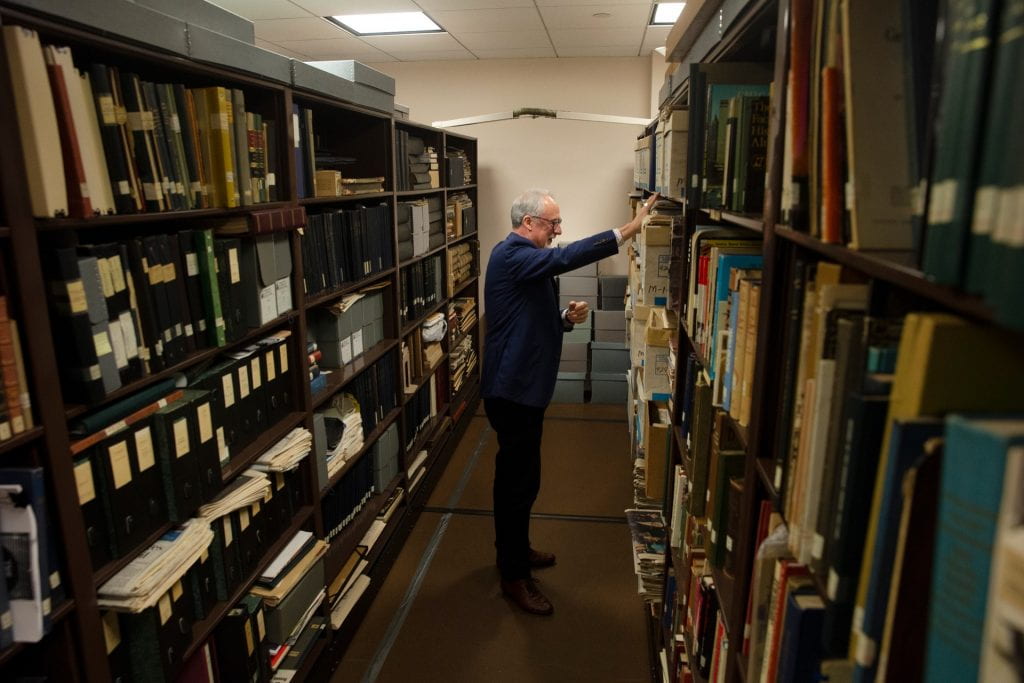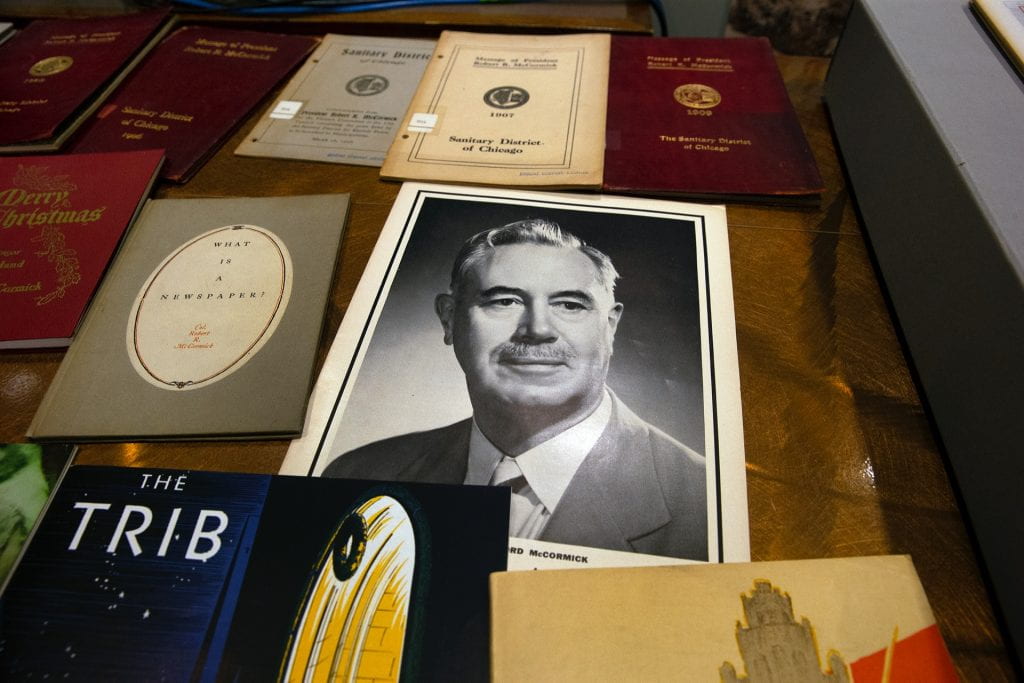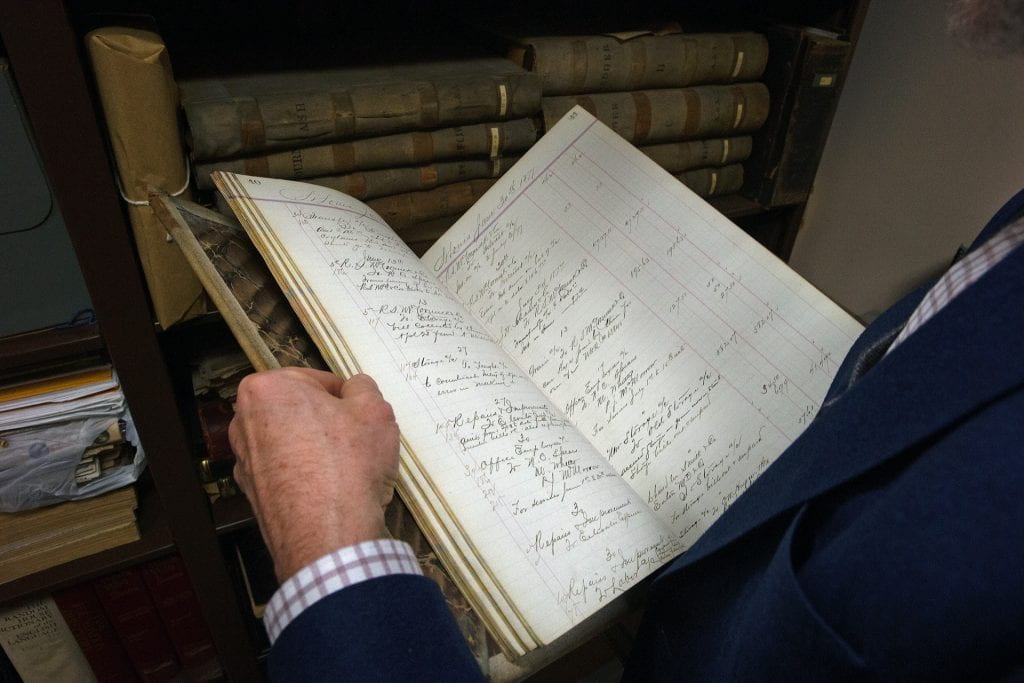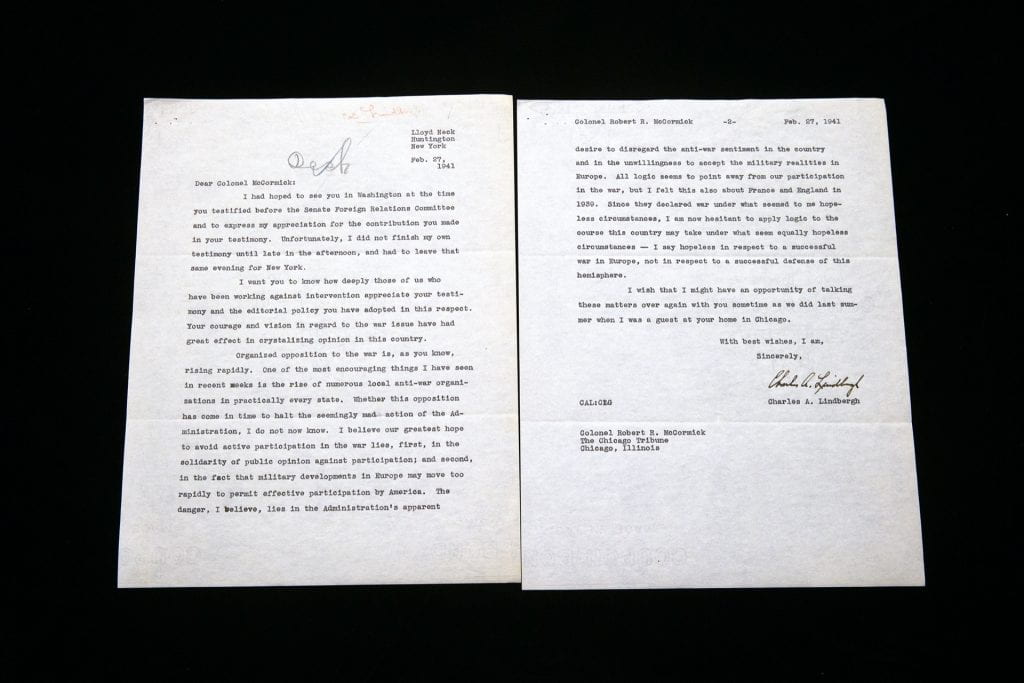One by one, three white trucks pulled up to the University Library loading dock in January, laden with the contents of the largest archive the Libraries have ever acquired.
Throughout the day, moving crews rolled wheeled pallets bearing the Robert R. McCormick Archives into the building. The long hallway to the dock (and several rooms, nooks, and assorted crannies) soon filled from stem to stern with stacks of boxes and entire filing cabinets. The materials encompassed McCormick’s long history as the influential publisher of the Chicago Tribune, making this one of the deepest, most bountiful journalism-related collections in the nation.
Scratch that—not just journalism-related. Everything-related.
“In truth, it is a universal collection,” said Martin Antonetti, head of the Charles Deering McCormick Library of Special Collections and University Archives. “This isn’t just a trove of journalism history. It has great value to many fields of study.”
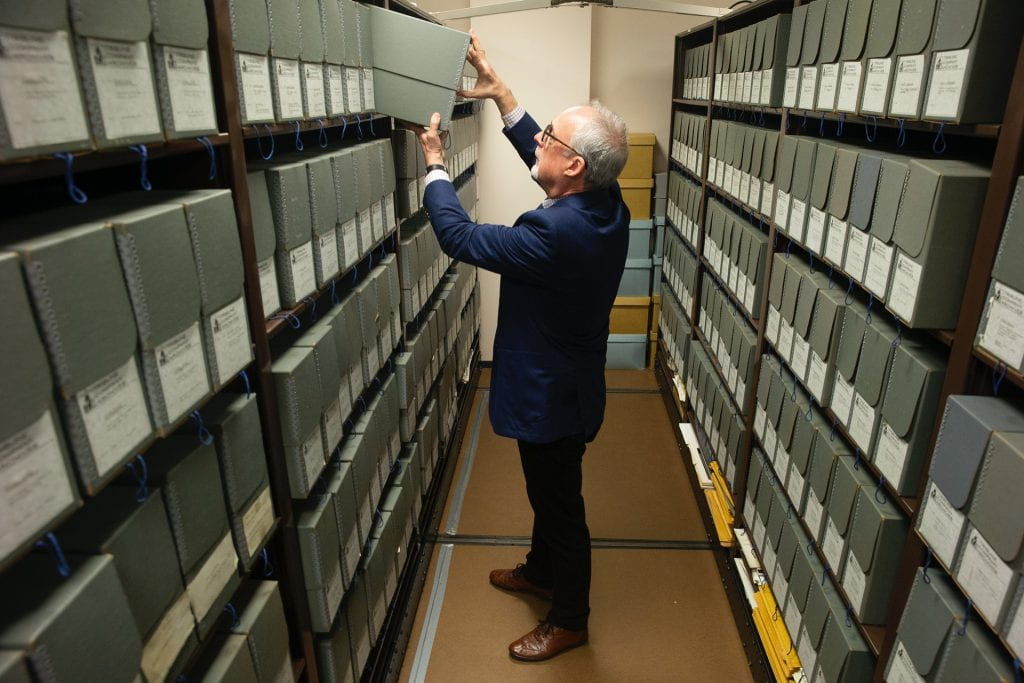
Antonetti examines the vast archive before its move from the First Division Museum at Cantigny Park.
Formerly housed at Cantigny Park, McCormick’s estate in Wheaton, Illinois, the archive was a gift of the Chicago Tribune Company, the Robert R. McCormick Foundation, and Nexstar Media Group. Its voluminous contents include personal, family, and Tribune business papers. Preliminary measurements suggest it will fill 600 linear feet of space when processed, though that number is deceiving; because many documents, books, and files are stacked, the total is likely closer to 2,000 feet of material.
Legacy and controversy
McCormick’s impact on Chicago was undeniably enormous. After a brief stint in Chicago politics, he joined the family business after the 1910 death of his uncle, Tribune editor Robert Patterson. He and his cousin, Joseph Medill Patterson, grew the scope and the influence of the paper aggressively for years. During World War I he served with the US Army’s First Division in Europe, becoming known thereafter as “the Colonel” in civilian life.
The Tribune of that day covered regional news and national issues that may sound familiar to modern audiences. “This collection can be used to talk about immigration, nativism, segregation, unions, American involvement in world affairs, and women’s rights at the beginning of the feminism movement,” said Antonetti.
Those are among the collection’s pointed themes not just because they were national issues covered by the self-professed “World’s Greatest Newspaper.” McCormick held strident “America first” views and made sure the Tribune reflected them. “He had a bully pulpit, and he used it,” Antonetti said. “This gave him enormous influence on local and national readers.”
In 1997, Tribune reporter F. Robert Ciccone wrote a laundry list of things McCormick (hence, the Tribune) hated, including liberals, the League of Nations, FDR, England, Henry Ford, New York, and the South. Governed by McCormick’s personal predilections, Ciccone wrote, the Tribune “did not simply support the Republican Party; it believed, with great cause, that it was the Republican Party.”
Also a devoted defender of the free press, McCormick funded the defense of the libel lawsuit leading to the landmark Near v. Minnesota Supreme Court decision. That ruling protected speech even if it was scurrilous or malicious.
Early Chicago history
The archive extends back beyond McCormick’s tenure to include records from the Tribune’s earliest days, when the paper was run by his grandfather, Joseph Medill. The eponym of Northwestern’s journalism school, Medill became the Tribune’s managing editor in 1854 and later its editor in chief, serving until his death in 1899. Materials from this era include memos and directives by Tribune editors.
While the archive includes McCormick’s correspondence with the most influential people of his day, from entertainers to presidents, perhaps the collection’s most notable letters were written much earlier by an aspiring politician named Abraham Lincoln.
Lincoln’s five letters to the Tribune show a rarely seen irascible side. “How in God’s name do you let such paragraphs into the Tribune?” he wrote to editor C. H. Ray in 1858. Lincoln complained about editorials that weren’t sufficiently supportive of Republican causes and sounded instead as if they had been written by the Tribune’s rival paper, a Democratic party mouthpiece. Other letters in the archive include correspondence with figures such as Charles Lindbergh, Gen. George S. Patton, Winston Churchill, Amelia Earhart, and others.
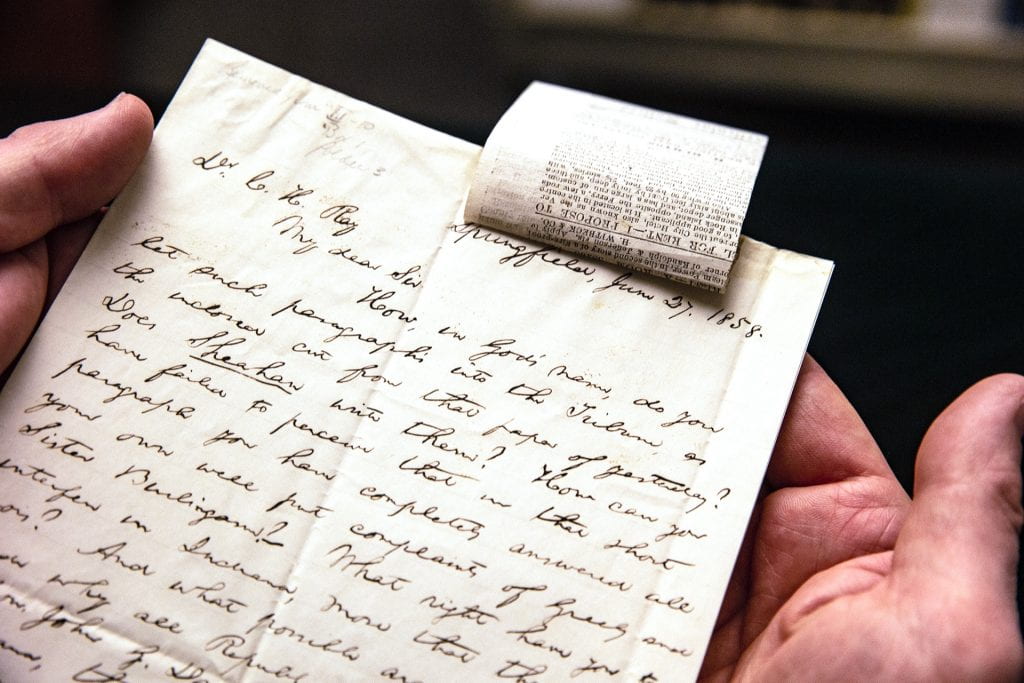
“My dear Sir; How in God’s name do you let such paragraphs into the Tribune?” — Abraham Lincoln, 1858
Another early Tribune contributor found in the archive is Pulitzer Prize winner John T. McCutcheon, who drew memorable political cartoons for the paper from 1903 to 1946. The archive’s thousands of McCutcheon cartoon plates join more than 450 other McCutcheon prints already held by the Libraries.
Northwestern connection
McCormick had a long relationship with Northwestern, beginning when he enrolled in its law school in 1904. He left the University for a career in Chicago politics without completing his law degree.
As a champion of all things that benefited the Chicago region, McCormick often supported the University. The Tribune contributed heavily to the 1921 founding of Northwestern’s journalism school, which was named for his grandfather, Joseph Medill. Later, McCormick contributed to the University—including the medical, engineering, and journalism schools—through his personal philanthropy. Since the Colonel’s death, the McCormick Foundation has contributed more than $100 million to support Northwestern, including programs at the Medill School of Journalism, Media, Integrated Marketing Communications; the Robert R. McCormick School of Engineering and Applied Science; and Northwestern Memorial Hospital.
Receiving McCormick’s archive at Northwestern isn’t just a quaint homecoming for a benefactor’s memorabilia, said Antonetti. Instead, housing these historic business and personal documents at a major academic research library increases their discoverability and accessibility. They join an already impressive array of relevant archives at the Libraries that attract a host of researchers interested in American life in the last century.
“Collections speak to each other,” Antonetti said. “They have a way of adding up to more when they are in close proximity to other collections.”
For further information about using the archive contact Martin Antonetti.
Photography by Nuccio DiNuzzo.




